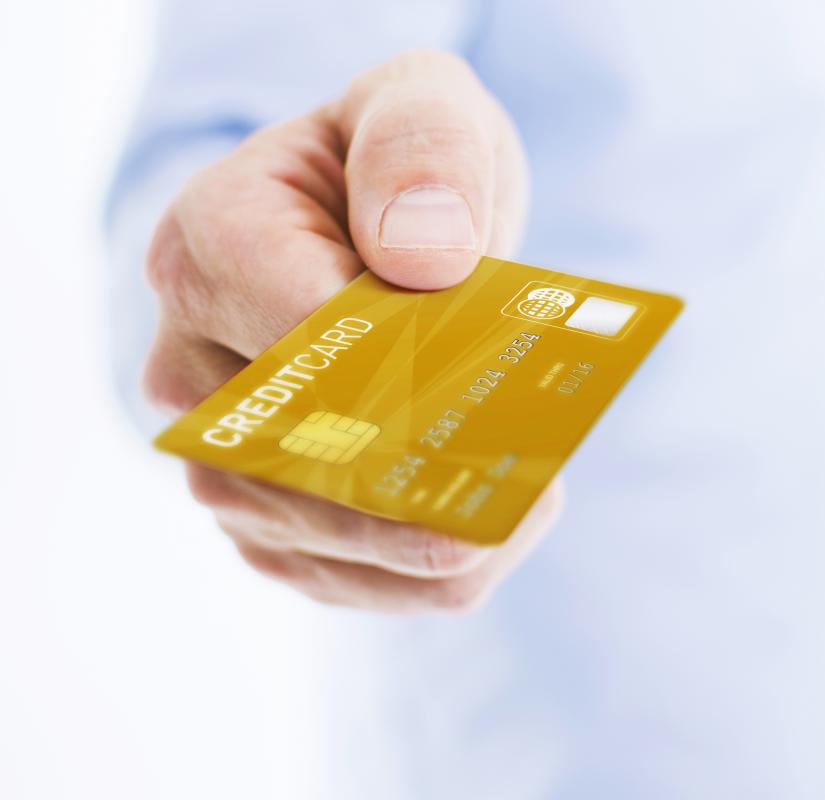At WiseGEEK, we're committed to delivering accurate, trustworthy information. Our expert-authored content is rigorously fact-checked and sourced from credible authorities. Discover how we uphold the highest standards in providing you with reliable knowledge.
What is Considered a Bad Credit Rating?
A bad credit rating can prevent an individual from achieving mangy of his goals or at least make it harder to achieve them. For example, a person who wants to purchase a home may find it dramatically harder to do so with a bad credit rating. An individual may even find it difficult to secure a car loan or some types of jobs with a poor credit score. The scores that are considered a poor credit rating may depend on the country in which a person lives and the lender in question. Often, major mortgage lenders set the tone for deciding whether a credit rating is good or bad; other lenders, however, may still set their own expectations when it comes to a potential borrower’s credit score.
In most cases, a bad credit rating depends on the lender's expectations. For example, a mortgage lender may consider a bad credit rating anything that is below 620, but most places do not have a standard credit rating that is good or bad. Instead, lenders typically decide what they think constitutes a bad credit rating on their own. To do this, they typically evaluate what makes a good risk for their particular industry and company. For example, a company may decide that a fair or good credit score is anything above 620 and anything below 620 is poor.

While the manner in which creditors decide what constitutes a poor credit rating may vary, a person may determine whether or not his credit rating is likely to be considered poor by learning what creditors want on average. If most creditors in an area prefer borrowers who have at least a 680 credit score, and an individual knows his credit score is 500, chances are the creditors in his area will consider him to have a very poor credit rating. In general, the higher the credit rating, the more favorably it is viewed in a lender's eyes. By the same token, the closer a person is to the lowest end of a credit score scale, the more likely it is that he has a bad credit rating.

In many countries, there are organizations that help influence whether credit ratings are considered good or bad. For example, such an organization may have a complicated mathematical formula for determining credit scores, and it may also provide information about what it considers the range for good credit ratings. Credit bureaus may also have their own criteria for calculating credit scores. Ultimately, however lenders decide what they consider good or bad.
AS FEATURED ON:
AS FEATURED ON:













Discussion Comments
The thing about bad credit is that it tends to build up overtime. In fact, let's look at it this way. Let's say that you forget to pay off your mortgage one time, and it goes on your bad credit. When others see what you owe, they might not think it's a big deal, and you might not either. However, as time goes on and you begin to slack off, the debt starts to pile up, and it will affect you more and more. Generally speaking, bad credits and debts tend to happen in a series of build-ups. It's certainly not an overnight process.
@Viranty - I agree with you about student loans. When I first graduated from college, I had this problem because I didn't have a job. However, more than often, your unpaid loans won't go on bad credit if you explain to them about your situation. For the most part, they are very understanding, and when realizing that you don't have a job yet, will give you extended periods of time to pay your debts.
While the reasons for a bad credit rating all depend on what the problem is, one problem can certainly relate to student loans. When you graduate from college and have to pay off your loans, you may run into trouble in the sense that if you don't pay them off, it will go on a bad credit rating. As the article also mentions, this might affect how you're able to buy things in the future. For example, if you try to open up a new bank account, the bank holders might refuse when they see what kind of credit you have.
Post your comments